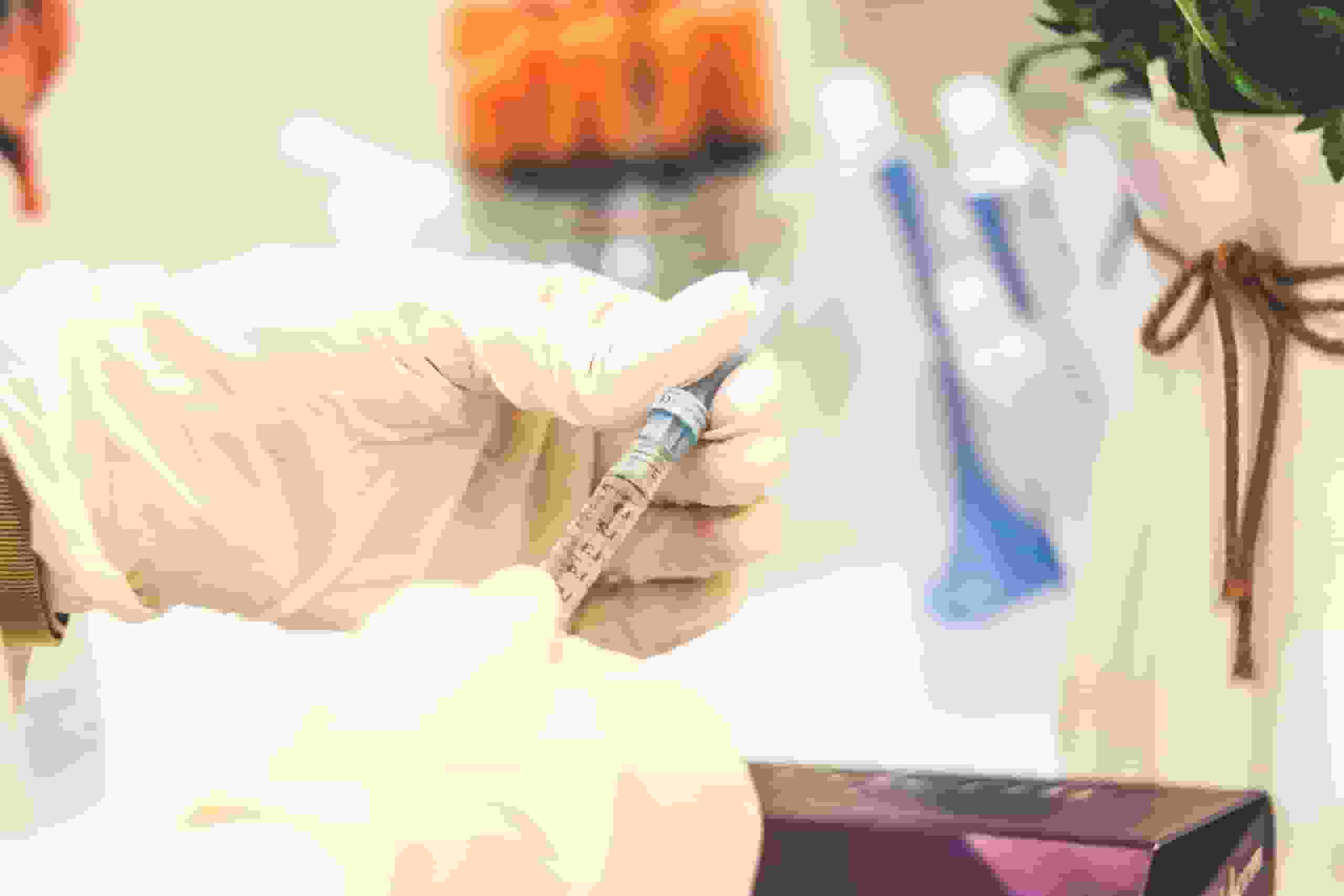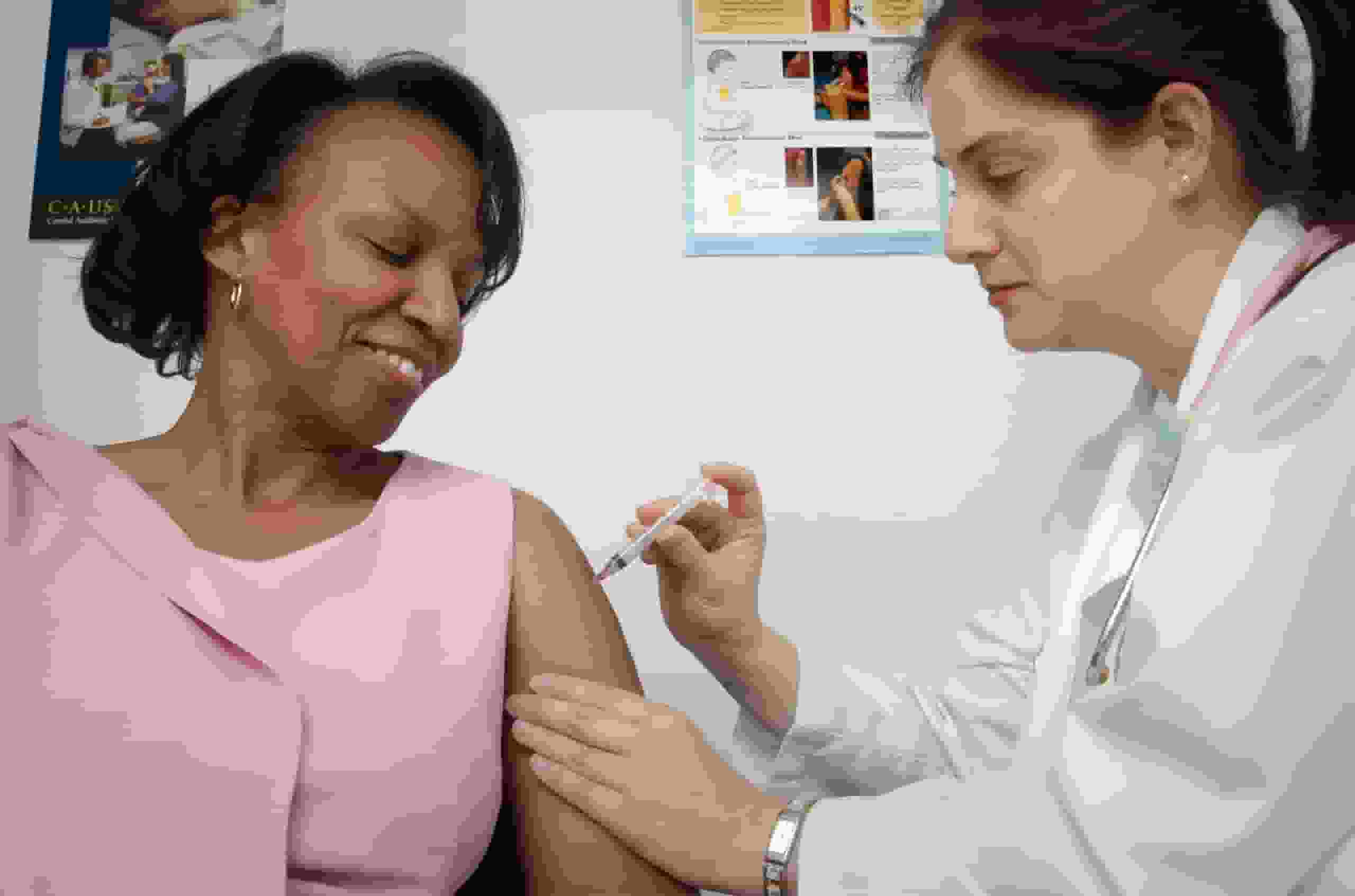
The US Centers for Disease Control and Prevention announced new immunization schedules that include COVID-19 vaccines.
The immunization schedules provide a summary of current vaccine recommendations for children, adolescents, and adults, but they do not establish vaccination mandates for schools or businesses.
COVID-19 Vaccines Available In US
On Thursday’s edition of the CDC’s Morbidity and Mortality Weekly Report includes the inclusion of the COVID-19 main vaccine series and advice on booster dose vaccination; revised advice on influenza and pneumococcal vaccines; and new measles, mumps, and rubella (MMR) and hepatitis B vaccines.
In addition, the schedule suggests additional doses of MMR vaccine during a mumps outbreak and administration of inactivated poliovirus vaccine to individuals at a greater risk of exposure to the virus.
The suggested adjustments were recommended by the CDC’s vaccination advisers, the Advisory Committee on Immunization Practices or ACIP, and approved by the CDC, which collaborated on the recommendation with physicians, nurses, and pharmacists.
This implies that the COVID-19 vaccine is no longer offered in a special call-out box, as it was in previous years. This helps ‘normalize’ this vaccine and sends a strong message to both healthcare providers and the general public that everyone 6 months and older should stay up to date with recommended COVID-19 vaccines (including a booster when eligible), just as they would with any other routinely recommended vaccine, Drs. Neil Murthy and A. Patricia Wodi said in a statement.
State and local governments, and not the CDC, establish the immunization requirements for school entry. The revised recommendations also include the use of PCV15, a pneumococcal conjugate vaccination newly licensed for use in children to combat bacterial infections. Based on the specific pediatric population, either PCV13 or the higher-valent PCV15 may now be utilized.
The authors of the report give advice on how to respond to a mumps outbreak. This occurs at the conclusion of a measles outbreak in Columbus, Ohio, where all sick youngsters were not fully immunized. According to the recommendations, a booster dose of the measles, mumps, and rubella vaccination is necessary in the event of a mumps outbreak.
The measles vaccine does not require a booster dose, according to Dr. William Schaffner, a professor in the Division of Infectious Diseases at Vanderbilt Medical Center. According to Dr. Schaffner, the initial immunization provides protection for a lifetime. The effectiveness of the measles vaccine, however, declines. Therefore, we would utilize MMR in the event of a mumps outbreak.
New Proposals Offer Clear Direction
Similarly, the revised recommendations provide explicit guidance on the use of an extra poliovirus vaccine in the event of the emergence of new cases, such as those that occurred in New York City last year.
Schaffner, a member of the CDC’s vaccine advisory board, said, There were many questions about whether an additional dose of polio vaccine was appropriate, and this just opens the door for the use of another dose of inactivated virus, that is injectable polio vaccine, in situations where, for example, a local health department in conjunction with the CDC might recommend that.
As childhood immunization rates have dropped in recent years, experts in public health stress the need for annual vaccines. In the 2021-2022 school year, kindergarten vaccination coverage dropped to 93% for mandatory immunizations, falling below the overall goal of 95% established by the US Department of Health and Human Services’ Healthy People program.
This decline in vaccine coverage has been attributed to healthcare disruptions caused by the COVID-19 pandemic, according to experts, and healthcare providers are working diligently to return to and surpass levels prior to the pandemic.
Read more: Are Medicare premiums taxable? Here’s what to expect after public health emergency ends
Why Is That A Matter Of Concern?

Because it allows these viruses and other pathogens to be reintroduced into the United States and trigger epidemics of sickness. The recently ended measles outbreak in Ohio and the entry of the poliovirus into New York are examples of why we must be vigilant, Schaffner stated.
Professionals in the healthcare field urge parents to ensure that their children’s vaccinations are up-to-date.
Vaccines are vital for the health of our entire population, including children and adolescents, said Dr. Sean O’Leary, head of the American Academy of Pediatrics Committee on Infectious Diseases and a CDC vaccine consultant.
We are all responsible for ensuring that everyone has access to immunizations, both for their own health and to prevent the spread of infectious diseases. These schedules provide a guide for parents and clinicians to help children receive the necessary immunizations so that their immune systems are prepared to recognize and combat disease.
Read more: Mental health issues linked to absenteeism of children

